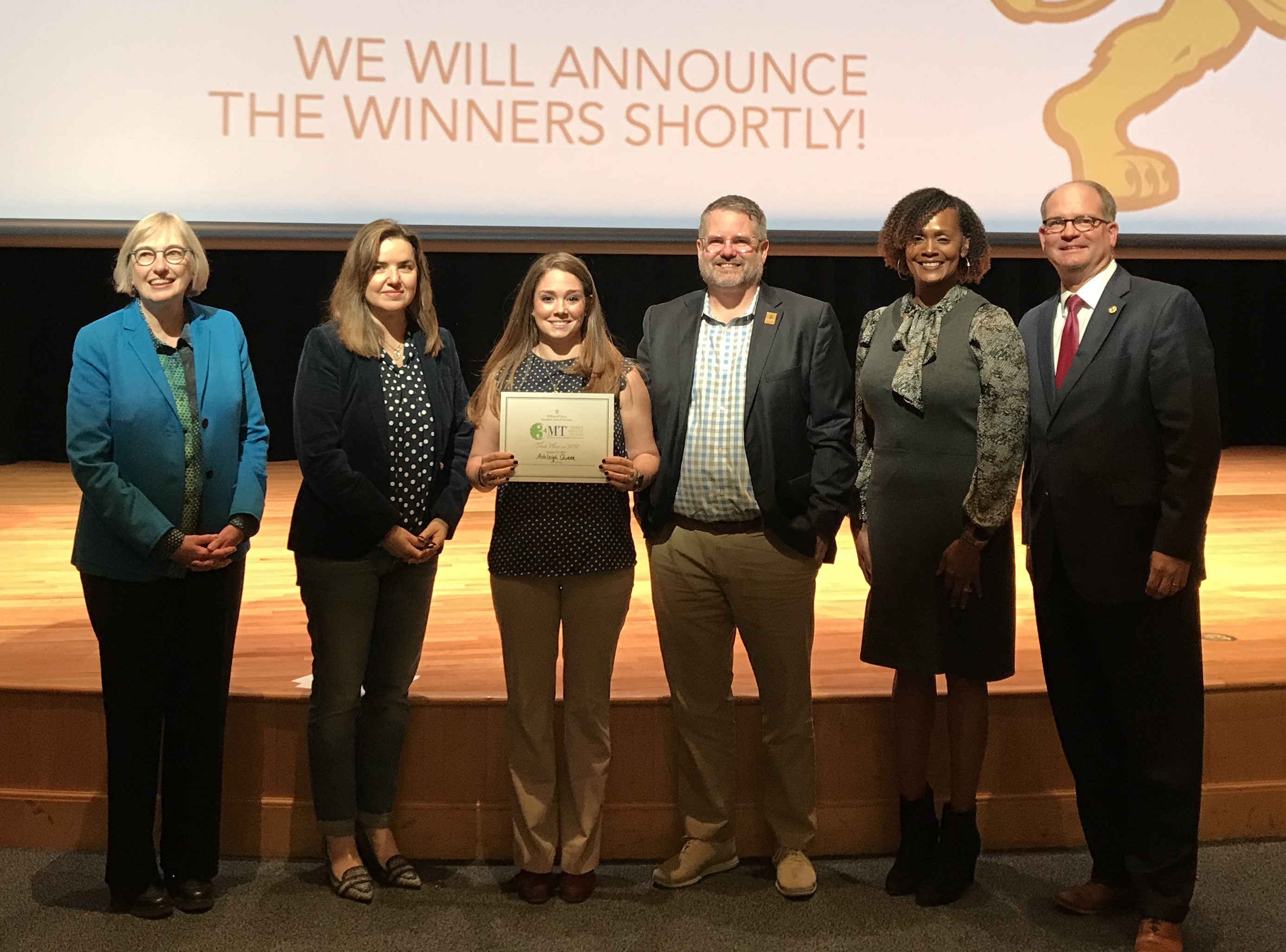School of Education students compete in 3 Minute Thesis Competition
{{youtube:large:center|ZjvBFVeEoD0, Queen presents on the influence of academic advising in orienting STEM transfer students to their new campus.}}
The School of Education was represented in the 3 Minute Thesis Competition for the first time as two students in the higher education program presented their doctoral research. The competition, now in its third year at William & Mary, is supported by the Graduate Studies Advisory Board and the Office of Graduate Studies and Research. In the competition, graduate students must use one slide, no props and just three minutes to effectively explain their research and its importance to a general audience.
The competition was an experience unlike anything students had done before, they said. Narrowing down their dissertation research and explaining it to an audience that was unfamiliar with their topics in just three minutes was a challenge.
It was difficult to distill years of research into three minutes, Asia R. Randolph Ph.D. ’20, said, but the opportunity taught her how to explain complex research in a simple way, an invaluable skill for students.
For Ashleigh Queen Ed.D. ’20, the experience prepared her for her dissertation defense next semester as she also learned the importance of explaining her investigations in a way people could easily understand. A senior lecturer at W&M, Queen is used to presenting in front of students, but this time, faculty and administrators made up the panel of judges.
Queen’s research focuses on the role of academic advising in connecting STEM transfer students to their campuses and aiding in their academic success. She focused her research on students in STEM fields because the demand for students skilled in these areas is increasing and transfer students are a growing population.
The affinity for the topic comes from her work as a pre-major and major academic advisor for undergraduate students, one of her favorite parts of working at W&M. She chose to work with transfer students after being introduced to the difficulties they faced as they entered a new environment and tried to graduate on time. Being a graduate in STEM, she understood the rigor of the work and wanted to combine her passions for advising transfer students and STEM academia to help students be successful.
“My goal in completing this process is to better understand the experience that STEM transfer students have and to apply the lessons to my own advising,” Queen said. 
Asia R. Randolph, a fellow doctoral student in the higher education program, joined Queen on stage to vie for the prize.
The task of whittling her research into a mere three minutes was made more daunting by having to find a focus for her research before presentation time, said Randolph. With her research not yet fully developed and knowing that her competitors were almost finished or had already completed their dissertations, Randolph learned to embrace the learning process of explaining her research to people who weren't familiar with it and finding her focus along the way.
Randolph is also passionate about helping students succeed in STEM fields. Her career goal is to help underrepresented students succeed in postsecondary education and to tackle underrepresentation of minority faculty in tenured positions in STEM fields.
Her research examines the context of educational policy and how it shapes the opportunities for underrepresented groups. She presented a policy discourse analysis of the National Science Foundation’s Excellence in Mathematics, Science and Engineering Act of 1990, where she explores how policymakers viewed the need for the policy and the reasons why minority education was an important solution to the educational problems of the time.
While the competition proved to be a challenge, Queen and Randolph were grateful for the opportunity to participate. Queen often tells her students that they will never regret perfecting the skill of public speaking. This time, she heeded her own advice.
Randolph encourages students to participate. “Once you’ve accomplished it, you will be so glad that you challenged yourself to do it.”